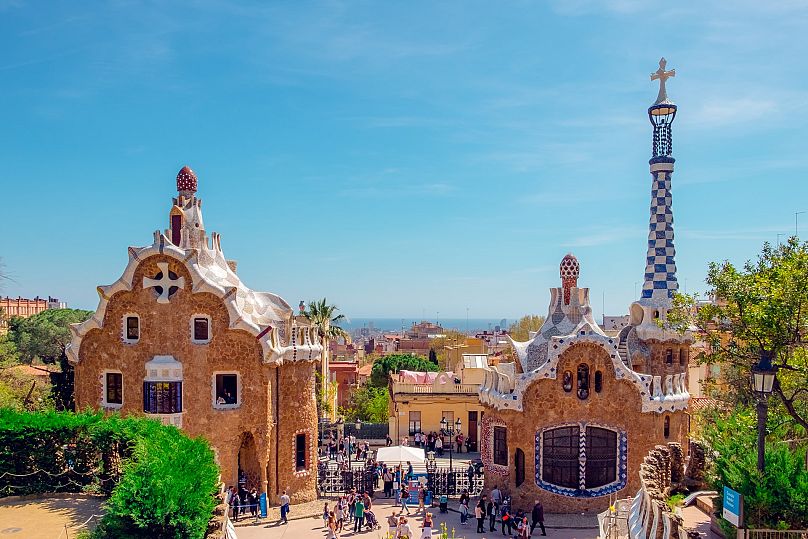A new study found violent crime in Boston rose in areas home to the short-term rentals, even as crimes involving tourists remained at similar levels.
Researchers in the United States say there is a link between Airbnb rentals and violent crime in cities.
 ADVERTISEMENT
ADVERTISEMENT
 ADVERTISEMENT
ADVERTISEMENT
Their study, published in peer-reviewed open-source journal PLOS One on Wednesday, covers the period of 2011-2018 in Boston. It quantifies the number of Airbnbs present in the city's neighbourhoods by linking their addresses to census data.
The researchers found that there was a positive correlation between higher penetration of Airbnb properties in an area – for example buildings containing multiple Airbnb lets – and a rise in violence. However, crime types associated with rowdy visitors, like drunkenness and noise complaints, as well as private conflicts, did not increase.
According to one study author, the correlation isn't due to Airbnb tourists falling prey to pickpockets, but rather the way the short-term rental service can push long-term residents out of neighbourhoods.
"It's not the number of Airbnb tourists who stay in a neighborhood that causes an increase in criminal activities," said Professor Babak Heydari from Northeastern University.
"It's the creation of transient properties spread throughout a neighbourhood that undermines social organisation and social capital over time, and can cause disorder and criminal activities as a result".
Put simply, the researchers found that as homes transitioned to being used for short-term Airbnb rentals, the ability of a local community to police itself fell, leading to more crime taking place.
This hypothesis is backed up by the fact that higher levels of violent crime did not appear immediately after Airbnb listings became available to tourists, but rather developed over the course of several years, the researchers said.
Airbnb: 'Study was flawed'
In response to the Northeastern University study, Airbnb directed Euronews Next to an article rebutting the researchers' claims.
"[The study] uses an unrepresentative sample within one city to make broad nationwide conclusions; applies a faulty methodology including a flawed regression analysis; and relies on inaccurate data. The result is a paper with inaccurate conclusions not supported by the evidence," the company said.
Airbnb also said there were flaws in the data the study was based on. According to the company, the researchers' use of the "Joined in" field on the Airbnb website to determine the year a property appeared on the site led to inaccuracies as it shows when an individual signed up to the site, either as a host or as a guest.
"While the approach taken by these authors resulted in conclusions not supported by the facts or the methodology, we continue to welcome the opportunity to work with those who want to approach these important issues with a seriousness of purpose," the company said.
Similar results in Europe
Another study carried out in Barcelona by a researcher from the University of Cádiz last year found similar results to the Boston study, saying that "the density of [Airbnb] lodgings is associated with crime in a positive and significant way".
Study author Diego Maldonado-Guzmán told Euronews Next that in Barcelona's case there were multiple likely explanations for the link between Airbnb and crime.
"It encourages the concentration of tourists who, due to their characteristics, are suitable targets for victimisation," Maldonado-Guzmán said.
Maldonado-Guzmán also suggested that Airbnb pushed up housing costs in city neighbourhoods, leading to poor relations between Airbnb users and long-term residents, while also eroding the ability of a neighbourhood to take care of itself.
"This generates a rejection in the local population, since transnational migrants are seen as responsible for the increase in the price of housing and the expulsion of lifelong neighbours.
"This climate of suspicion and mistrust would hinder social relations, already difficult to maintain in the face of the continuous arrival of new populations that remain in the neighbourhood for a very limited time. As a whole, social ties would be broken and, with them, the social fabric," he said.
Local governments in cities including Barcelona have already taken steps to regulate Airbnb, limiting the number of homes available for tourist use. According to Maldonado-Guzmán, authorities should take further action to ensure better social cohesion in cities in future.
"Deeper solutions are needed, such as greater investment in public housing, planned in adequate terms so as not to produce greater social segregation of the poorer social classes that end up being expelled by the dynamics of gentrification," he said.











